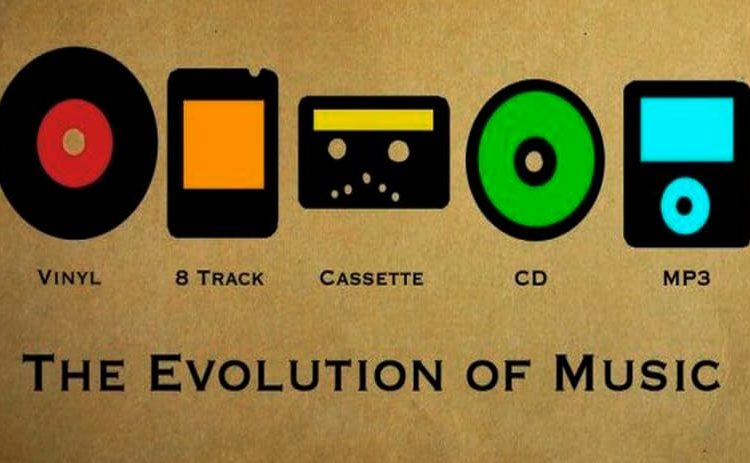From ancient times till 2024, music has been on a long journey that spans millennia. This odyssey made music reflect changes in culture, technology and global influence from traditional communal folk-ways to modern language widespread all over the globe that intertwines with bleeding-edge technology.
Going further, we will see how modern technology has completely revamped not only the making and distribution of music but also its availability and involvement to mark a new era in its endless evolution.
Rhythms of Antiquity: Unearthing the Roots of Early Music
Music is said to have started along with humanity itself; its earliest forms were natural sounds and human voice imitations. Primitive musical instruments like bone flutes, drums or lyres found at archaeological digs confirmed that they were used for rituals as well as storytelling and socializing purposes by various cultures.
These elementary notes and tools served as the foundation stone for complex harmonies and sophisticated music structures that would develop later, indicating how deeply connected this particular kind of art is to human expression and culture.
Classical Milestones: Tracing the Path from Baroque to Romanticism
The Baroque and Romantic periods are crucial in the history of music during the classical period. The Baroque period, which began in the late 16th century to the mid-18th century, produced several complex musical forms such as fudge and concerto grosso, which used to have intense variations within compositions.
Leading composers like Johann Sebastian Bach and George Frideric Handel were responsible for works that stressed on orderliness, intricacy and emotional resonance. Next after the Baroque era was the Romantic period, which started from the late 18th century through to the 19th century, and saw a transition towards an emphasis on emotion, individualism and personal expression in music.
This was further advanced by famous composers Ludwig van Beethoven, Richard Wagner and Frédéric Chopin who pushed concepts of music beyond its limits in terms of harmonic complexity, thematic development and expressivity. They not only improved music’s repertoire but also paved the way for future changes affecting generations of musicians as well as composers who came after them.
Decades of Diversity: The Eclectic Sounds of the 20th Century
In the 20th century, there was a great deal of musical innovation in many areas. Different categories of music came up during this time and impacted greatly the cultural and musical landscape of the world. Jazz began to be played in about the early 1900s with syncopated rhythms and improvisations that reflected the complexity of American social changes, thus other numerous types were influenced by its expressive freedom. As a result, rock and roll had deep emotional narratives rooted in African American work songs as well as spirituals called blues.
On the other hand, electronic music stormed out from studios to hit clubs, reshaping nightlife forever. Electronic music has gone from being something experimental founded in studios into several mainstream styles such as techno or house, impacting nightlife and also how modern-day popular melodies are made. These aforementioned genres not only contributed unique sounds and techniques but also reflected societal shifts including the civil rights movement to technological advancement:
- Jazz: Improvisation, complex harmonies, significant in the Roaring Twenties and Great Depression.
- Blues: Deep emotional expression, the foundation for rock and R&B.
- Rock: Diverse subgenres, a symbol of youth rebellion and cultural change.
- The electric: Made up sounds and dance culture industry revolution.
This diversity has been the result of different genres of music being developed, thus making contemporary music versatile and multifaceted.
Digital Revolution: The Emergence of 21st Century Music Tech
Over the past two decades alone, music in the electronic field has experienced an explosion, and this change has been brought about by technology. The rise of digital recording, synthesis and production tools has allowed anyone to make high-quality tracks from any location.
Not only have these developments widened the scope of what can be done musically, but they have also reoriented how one can listen to or buy songs with a global reach. This transformation has given rise to new kinds of music, as well as increased artistic freedom unprecedented before for players within this sector.
Streaming and Accessibility: Music Distribution’s Transformation in 2024
By 2024 streaming has changed how people consume, disseminate and earn money from music radically. This gives listeners access to large catalogues of music anywhere in the world which eliminates geographic and financial obstacles that once limited its consumption. As a result, purchasing music became subscribing to it as a service, such development significantly affected musicianship’s essence.
Alternately, revenue streams have grown to be completely reliant on the number of streams, placements in playlists and recommendations by algorithms that can make or break an artist’s career. Additionally, streaming services have provided a more communal music experience as users can share playlists and find new music through social features, which serve to blend music with digital social spaces even further. A shift towards this direction has however provoked arguments over how artists should be paid fairly, thus demanding fair distribution models in this new musical economy.
AI and VR: Pioneering Music’s Technological Frontier in 2024
Cutting-edge advances in music technology around the year 2024 will see artificial intelligence (AI) and virtual reality (VR) at the helm of the latest innovations, bringing with them unprecedented experiences.
AI is changing the face of music composition, production and recommendation systems; allowing complex music to be made without human intervention and personalizing what you listen. On the contrary, VR is transforming concerts and events, where fans around the world can enjoy virtual performances without leaving their homes.

